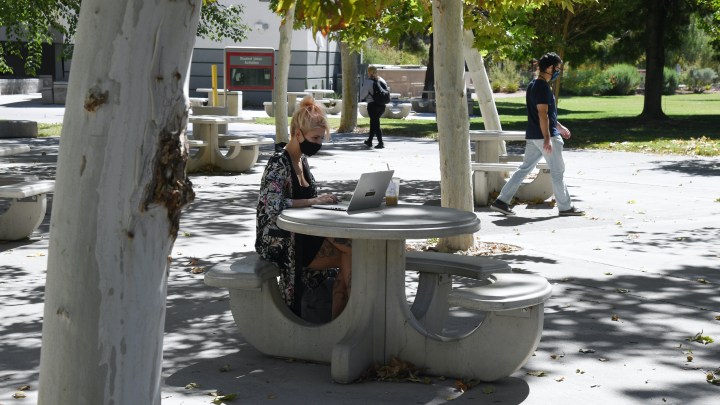
Coursera’s IPO reflects the demand for online learning

Coursera — a digital-learning company that offers college-level and professional courses — filed for an initial public stock offering Friday.
In some ways, education has led the acceleration of all things digital during the pandemic.
In its filing, Coursera said it saw 59% revenue growth in 2020 over 2019.
The company expects that trend will continue. It’s tied to people’s growing need, as well as desire, for lifelong learning.
Platforms like Coursera are known as MOOCs, an acronym for massive open online courses. Carla Hickman, a researcher with educational consulting group EAB, said when everything went online in 2020, traditional colleges came knocking.
“They were turning to other institutions to ask what kind of arrangements could be made, and providers like Coursera were absolutely a first place many institutions turned,” Hickman said.
Coursera already had the technology and strategic know-how that colleges needed.
Lots of the classes are in professional development, teaching everything from machine learning to Korean.
Robert Kelchen, a professor of higher education at Seton Hall University, said institutions like Stanford and Duke do have robust online platforms, but having classes on Coursera is a way to lure people who might then go on to get a degree.
“That’s the incentive for colleges to consider partnering. It’s not for the academic content side, it’s more for the marketing and promotion side of things,” Kelchen said.
Coursera now has 77 million users.
Even so, University of Florida professor Justin Ortagus said he’s skeptical. “I just can’t see this being a partnership that’s going to continue for years and years to come. I think this is something that was made out of necessity in relationship to the pandemic,” he said.
Online courses may be filling a current demand. Ortagus said once the pandemic is over, higher ed may not need MOOCs quite as much.
There’s a lot happening in the world. Through it all, Marketplace is here for you.
You rely on Marketplace to break down the world’s events and tell you how it affects you in a fact-based, approachable way. We rely on your financial support to keep making that possible.
Your donation today powers the independent journalism that you rely on. For just $5/month, you can help sustain Marketplace so we can keep reporting on the things that matter to you.

















